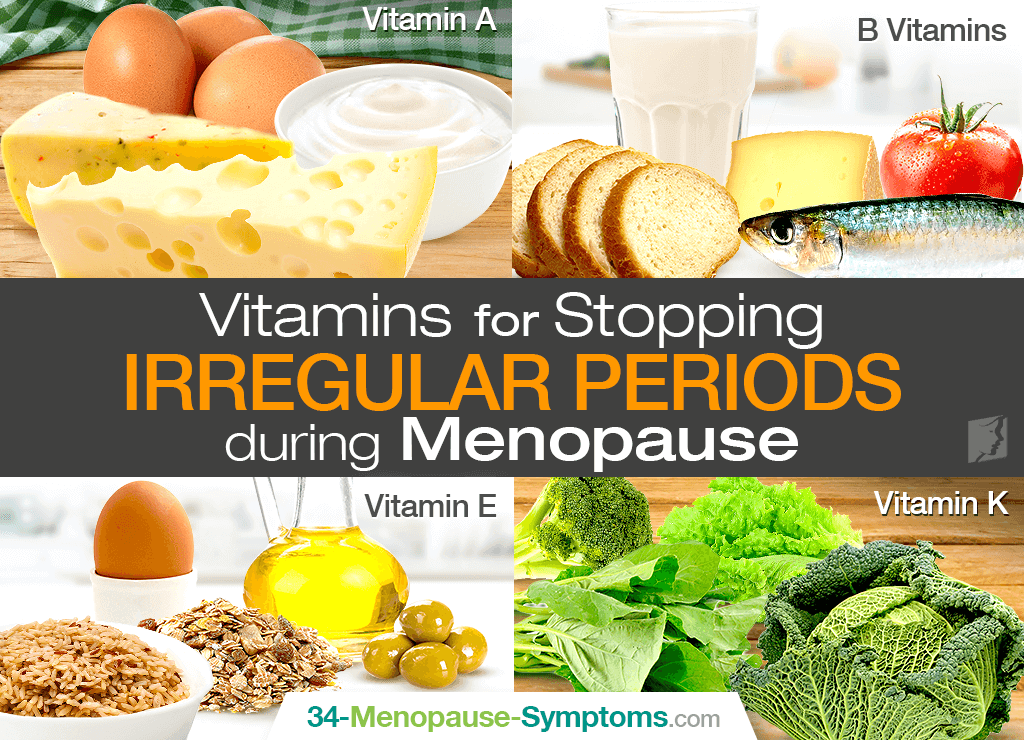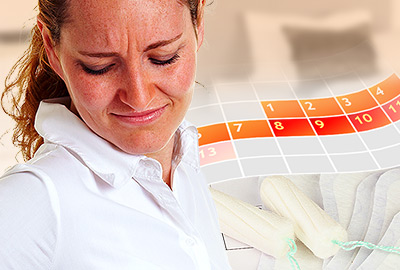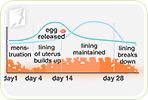Although a monthly period is not something that women necessarily enjoy, most understand that regular menstrual bleeding is an indicator of normality in the reproductive system, a sign that the body is functioning healthily. It's frustrating, then, during menopause, when hormonal changes in the body cause irregular activity in the menstrual cycle, often with numerous months passing between bleeding and painful cramps when bleeding does occur. Many underestimate the significance diet has in simulating hormonal activity and helping to regulate periods. Increasing your intake of particular vitamins is key to achieving this effect.
Vitamin A
During menopause, periods may not occur regularly, but when they do, they tend to be heavy and come with cramping. Vitamin A helps to keep the uterus wall lining healthy to stimulate regular shedding, and some studies have noted a reduction in menstrual cramping after vitamin A intake is increased. The vitamin is found in cheese, eggs, and yogurt, but the body is able to store it, so it is unnecessary to consume vitamin A on a daily basis.
B Vitamins
B vitamins are a set of complex but important vitamins that have an energizing effect on the body and stimulate healthy blood flow.
In preventing irregular periods, vitamin B6, B9, and B12 are most effective. B6, found in fish, vegetables, and whole grains, helps restore hormonal imbalances and helps correct irregular blood circulation. Folic acid, or B9, reduces pain associated with menstrual cramping, and works alongside B12 to boost blood cell function. B12 is one of the most important vitamins in the body for combating fatigue and enhancing the overall functioning of the body. Found in cheese, milk, and fish, B12 also plays a significant role in healthy red blood cell production.
Vitamin E
Vitamin E has been found to minimize the pain often associated with heavy menopausal periods by reducing menstrual blood loss and related cramping. Vitamin E is also a significant antioxidant, found in vegetable oils, whole grains, and eggs, which defends the body from damaging cells and boosts overall immunity and healthy cell functioning.
Vitamin K
Though rare, a deficiency of vitamin K - which is found in green vegetables - can cause particularly heavy menstrual bleeding during menopause. Increasing vitamin K intake, therefore, has a reductive effect on heavy bleeding during irregular periods, and can minimize the appearance of clots in menstrual blood.
Don't underestimate the importance of what you eat; consuming a balanced diet, rich in vitamins, minerals, and proteins, and low in saturated fats and cholesterol promotes healthy functioning in the body. This will boost hormonal activity in the body and have a regulating effect on your menstrual cycle, as well as other menopause symptoms, such as hot flashes, night sweats, and weight gain. Carefully consider what you put into your body, and you'll notice an energizing and uplifting effect on your well-being as well as your physical health.
Sources
- Higdon, J. (2011). Vitamin K. Linus Pauling Institute, Oregon State University. Retrieved February 25, 2014, from http://lpi.oregonstate.edu/infocenter/vitamins/vitaminK/
- National Health Service UK. (2011). Vitamins and Minerals - Vitamin A. Retrieved February 25, 2014, from http://www.nhs.uk/Conditions/vitamins-minerals/Pages/Vitamin-A.aspx
- National Health Service UK. (2011). Vitamins and minerals - Vitamin B. Retrieved February 25, 2014, from http://www.nhs.uk/Conditions/vitamins-minerals/Pages/Vitamin-B.aspx
- National Institutes of Health. (2012) Vitamin A: MedlinePlus Supplements. Retrieved February 25, 2014 from http://www.nlm.nih.gov/medlineplus/druginfo/natural/964.html
- National Institutes of Health. (2013). Vitamin E: MedlinePlus Supplements. Retrieved February 25, 2014, from http://www.nlm.nih.gov/medlineplus/druginfo/natural/954.html
- Office of Dietary Supplements. (2013). Vitamin E. Retrieved February 25, 2014, from http://ods.od.nih.gov/factsheets/VitaminE-HealthProfessional/




